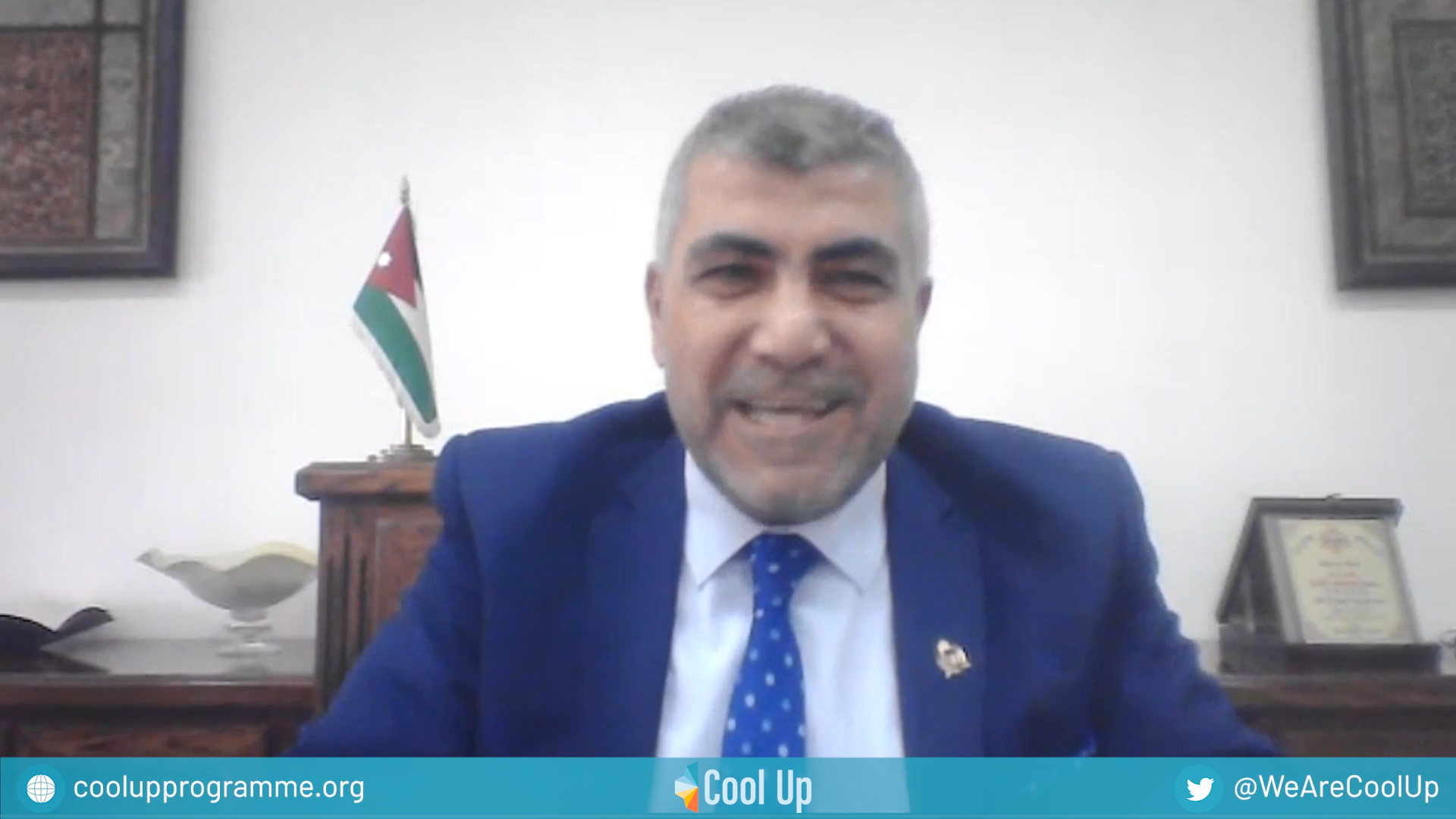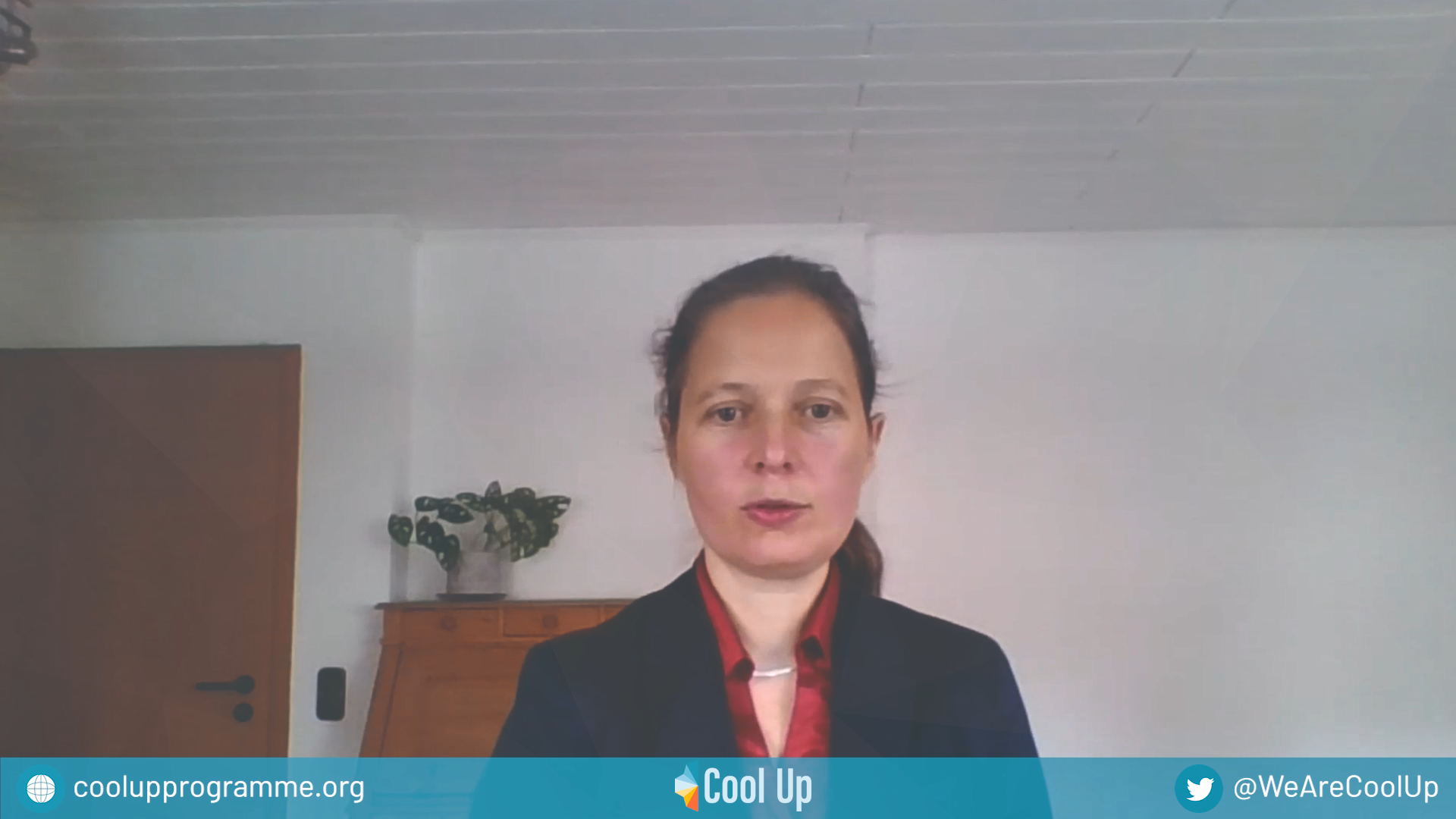News
International launch of the Cool Up programme
Following its kickoff in partner countries, the Cool Up programme officially internationally launched in a virtual event on 6 October 2021. The event introduced the programme to international stakeholders and featured ministerial representatives from Cool Up partner country governments. A wide range of cooling stakeholders from 32 countries joined.
The Cool Up team and Dr. Christian Meineke of the German Ministry for the Environment (BMU) kicked off the event by introducing the programme. They highlighted Cool Up’s four pillars and its holistic approach to accelerating the shift to sustainable cooling and implementation of international ozone and climate commitments.
Representatives from partner country governments, Egypt, Jordan, Lebanon, and Turkey, also took the floor to present their country’s national cooling and Kigali Amendment-related developments as well as their motivation for supporting sustainable cooling.
During the event, the Cool Up team introduced the programme and highlighted the regional and national perspectives on the topic. The event concluded with an open question-and-answer session with both representatives from the partner countries and the Cool Up team.
Overall, the event showed that there is considerable support, potential, and momentum to upscale sustainable cooling technologies, with key stakeholders from across the region and various industries showing interest and engagement.
“It’s inspiring to see so many key players in the sustainable cooling space bring such enthusiasm for Kigali implementation and natural refrigerants”.
Speakers included:
- Dr. Christian Meineke, Germany, Head of Unit, Fundamental Aspects of Chemical Safety, Chemicals Legislation / Federal Ministry for the Environment, Nature Conservation, and Nuclear Safety (BMU)
- Dr. Ezzat Lewis, Egypt, Head of National Ozone Unit / Egyptian Environmental Affairs Agency (EEAA)
- Dr. Mohammed Al Khashashneh, Jordan, Secretary General, Ministry of Environment / Jordan National Ozone Unit Focal Point
- Mr. Michelange Medlej, Lebanon, Senior advisor for Energy / Ministry of Energy and Water
- Mazen Hussein, Lebanon, Ministry of Environment
- Ms. Ülkü Füsun Ertürk, Turkey, Head of Division of Protection of Ozone Layer and Management of F-gas in Department of Climate Change and Adaptation within DG Environmental Management / Ministry of Environment and Urbanization
The event was moderated by Cool Up Programme Director Katja Eisbrenner of Guidehouse.
The event was recorded and can be viewed in two parts below.
About the Cool Up programme
Cool Up: Upscaling Sustainable Cooling programme promotes accelerated technological change in cooling demand reduction, and early implementation of the Kigali Amendment and Paris Agreement in Egypt, Jordan, Lebanon and Turkey. The goal of the Cool Up programme is to create catalytic change within the refrigeration and air conditioning sector by reducing cooling demand, supporting the phase-down of hydrofluorocarbons, replacing and safely disposing inefficient cooling appliances and refrigerants, and improving cooling appliance operation, training, and awareness. To tackle this challenge, the partners will work together over six years to build out a holistic approach across the entire cooling value chain. The three primary workstreams include policy and regulatory support, analysis of technology and markets, and the development of business and financing models.
Read more about the Cool Up programme here.
Cool Up is led by Guidehouse Germany GmbH. The team of international and national experts includes, Frankfurt School, ILK Dresden, Öko-Recherche, United Nations Development Programme, Regional Center for Renewable Energy and Energy Efficiency (RCREEE), Istanbul Aydin University (IAU), Integrated Development Group (IDG), Lebanese Center for Energy Conservation (LCEC), and Royal Scientific Society (RSS). Cool Up is part of the International Climate Initiative (IKI).
Read more about the Cool Up team here.


